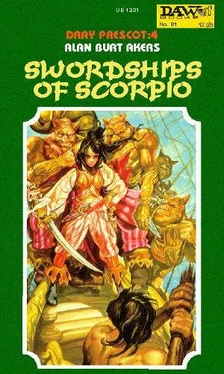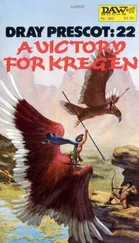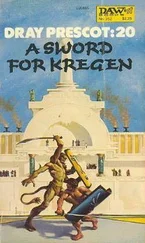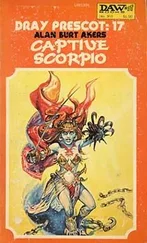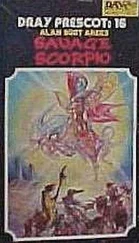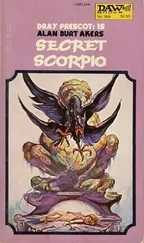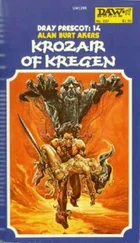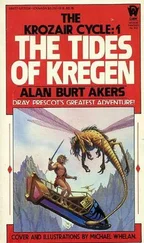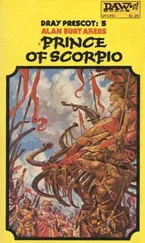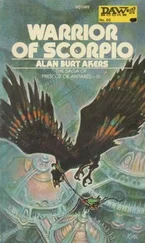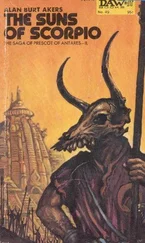Alan Akers - Swordships of Scorpio
Здесь есть возможность читать онлайн «Alan Akers - Swordships of Scorpio» весь текст электронной книги совершенно бесплатно (целиком полную версию без сокращений). В некоторых случаях можно слушать аудио, скачать через торрент в формате fb2 и присутствует краткое содержание. Жанр: Героическая фантастика, на английском языке. Описание произведения, (предисловие) а так же отзывы посетителей доступны на портале библиотеки ЛибКат.
- Название:Swordships of Scorpio
- Автор:
- Жанр:
- Год:неизвестен
- ISBN:нет данных
- Рейтинг книги:5 / 5. Голосов: 1
-
Избранное:Добавить в избранное
- Отзывы:
-
Ваша оценка:
- 100
- 1
- 2
- 3
- 4
- 5
Swordships of Scorpio: краткое содержание, описание и аннотация
Предлагаем к чтению аннотацию, описание, краткое содержание или предисловие (зависит от того, что написал сам автор книги «Swordships of Scorpio»). Если вы не нашли необходимую информацию о книге — напишите в комментариях, мы постараемся отыскать её.
Swordships of Scorpio — читать онлайн бесплатно полную книгу (весь текст) целиком
Ниже представлен текст книги, разбитый по страницам. Система сохранения места последней прочитанной страницы, позволяет с удобством читать онлайн бесплатно книгу «Swordships of Scorpio», без необходимости каждый раз заново искать на чём Вы остановились. Поставьте закладку, и сможете в любой момент перейти на страницу, на которой закончили чтение.
Интервал:
Закладка:
No!
That I would not tolerate.
The swordship on which I found myself was Nemo Zhantil Faril Opaz. This mouthful was itself an abbreviation, a kind of heraldic shorthand for a much longer name which meant, in effect: “King Nemo as courageous as a zhantil and beloved of Opaz.” For a laugh, and I sorely needed something to lighten my spirits in those dark days, I translated this out into English as: “King Nemo the lion-hearted, beloved of God.” And so cursed and struck the loom of my oar, and almost despaired of ever seeing my Delia again.
We rowed eight to an oar, usually, five pulling and three pushing. The swordship, usually known as Nemo, and by we slaves with a spit and curse also, had commissioned for service up among the islands chasing pirate swordships. She was a moderately large vessel, although I did not then ascertain her measurements, not being in a position to do so; but she rowed in her single bank of oars arranged alla scaloccio thirty oars a side. There were marked differences between this swordship and the swifters of the inner sea, differences dictated by the altered circumstances of sea and weather and distances. Whereas a swifter needed little freeboard, a swordship must be built with freeboard sufficient to cope with the deeper swell-waves and the greater violence of the outer oceans. Only one bank of oars was employed. The old-fashioned zenzile method of rowing was still found among the swordships, but it was rapidly disappearing. Because of this the oars were that much heavier and longer and were not angled so sharply into the water. Up front she possessed the curved bronze ram or rostrum that is still regarded by many sailors as the principal weapon of the oared galley, despite the problems of entrapping and swamping entailed in the rammed galley’s apostis. The proembolion, the second projecting wedge designed to thrust the rammed ship off the rostrum, was as well-developed among the swordships as among the swifters. Above that the beak extended forward, and here, too, a difference was found. The swifter beaks were movable, being lifted or slung down into position for boarding, rather after the fashion of a sophisticated and modernized Roman corvus. The swordship beaks were permanent structures and built so that they extended forward short of the point of the waterline ram, and they were extended aft into the foot of the low forecastle.
All in all, as I sweated at my oar with seven oarsmen around me, I fancied the swordships were as good a bargain a navy might get from the always unsatisfactory attempt to oar a sailing vessel, or sail a galley. Their underwater lines were nowhere as fine as a swifter’s and they were deeper in draft, which made them sea cows to row. But they were still long, lean, low, and they were cranky and dangerous and wet and hideously uncomfortable.
Every time I hauled the oar I cursed King Nemo. To liken him to a zhantil was a ludicrous slander on a noble beast; if anything, Nemo was a leem — or a cramph.
This swordship Nemo boasted three masts, unlike most of the pirate galleys I had previously encountered, and the captain seemed to me to be as unhandy a sailor as any I had shipped with and always preferred to use his oars. This made life hard. We sailed north and west up along the island chain, calling in at various of the port fortresses Tomboram maintained there. We did not sight a single pirate swordship.
We saw three scraps of sail on a bright day of fine visibility; but we sheered away and later the buzz went around the slave deck that the swordships had been from The Bloody Menaham. They would have been a relief to me. Mind you, I was well aware of the horror and the shambles of the rowing benches during a fight, but my mood was black and vicious and by this time I was ready to tear the throat out of a leem with my bare hands.
Nemo Zhantil Faril Opaz got her comeuppance at last in a way that was so ridiculous that every time I thought about it afterward I cursed in delighted wonder.
We had touched in at an island that Valka, a captured Vallian and a man who appealed to me and to whom I had been closest drawn of all those oar comrades, said was deserted. A party was about to go ashore for water when, peering through the oar-port I saw a sight that created, at once, a great shout of surprise and admiration and lust all over the swordship.
Onto the beach dashed a horde of half-naked girls.
They danced down to the water’s edge and they held out their hands to the swordship in supplication. Many and various were the oaths that floated fruitily into the hot air.
“By Likshu the Treacherous!” said a yellow Chulik farther along on our oar. “Were I not held by these chains!”
We mocked him. “Were any of us not held by these chains, oh mighty Chulik!”
“Mother Zinzu the Blessed!” rang a clear call from somewhere farther along the rowing deck, at which I felt all that old pang of remembrance. Many and varied, the oaths, fruity and blasphemous and calling on gods and demons and heroes from a score or more of different cultures. But we were slaves, naked and chained, filthy and mop-beaded, bristling with hair and vermin. That rout of beautiful naked girls was not for us.
The captain and the crew brought not water from the island but rich wine in great round-bellied amphorae. The girls, clad in their strings of flowers and feathers, laughed and came out to the swordship as the twin suns sank in an opaz glory. We slaves crouched on our rowing benches and glowered and fed on crusts, an onion each, and a strip of old cheese like lenk. The Maiden with the Many Smiles rose before the suns had gone. A weird clashing of colors poured over the swordship. We slaves could imagine what was happening in the aftercastle and the forecastle now; we could hear the peals of silvery laughter and the great gusts of sailor mirth.
And then, gradually, the sounds quieted down. We heard a shrill scream, and then another, fainter. Silence dropped on the swordship. We did not even hear the watch calling the turning of the sandglass. Valka said to me, “Something is amiss.” He roused the Gon who was nearest the gangway, an unpopular position as he was nearest the lash of the whip-deldar. “Hey, dom. What’s afoot?”
The Gon’s great bristling, malodorous thatch of bone-white hair lifted. Gons habitually shave their heads skull bare. If that is because they feel shame over a mop of white hair, one must sympathize with their own foolish beliefs. As it was, this Gon experienced deep shame over his unshaven head.
“Let be, Valka. I want to sleep, and dream of those women.”
“Look aft, you hairy nit! Is the watch by the lamp?”
The Gon stretched. “The lamp is not lit.”
“By Vox!” Valka galvanized himself into instant action. “This is the one night. .” He began to tear at his chains, desperately, until his nails tore and the blood poured forth. So far I had found no implement with which to file through the iron chains, as we had done in Grace of Grodno when Zorg, Nath, Zolta, and I planned escape. Yet Valka was right. This one night was our chance! But, through the most simple and elementary precautions of the crew, nothing convenient for a slave to rub through his chains lay handily about the deck. We might all have lost our reason, then, tearing at our fetters and trying to keep silent besides. Already the unlit lamp proved the routine of the swordship had been altered, and when we were not hosed down for the night we knew beyond doubt that the crew was otherwise engaged — and in our lascivious dreams how wrong we were!
For — in the lambent pink floods of moonlight a girl stepped up onto the central gangway. Every head turned to look — but there were no cries of admiration or lust or, even, of wonder. In absolute silence that slip of a girl walked all the way along the central gangway, from aft forward, half-naked, her limbs gleaming pink in the moonglow, swinging her burden lightly from one little fist. She held that burden by its hair. Sightless eyes glared out upon the rowing benches. From the severed neck from which still strips of gristle and flesh dangled dropped the dark blood. Drop by drop as she walked the blood fell upon the gangway.
Читать дальшеИнтервал:
Закладка:
Похожие книги на «Swordships of Scorpio»
Представляем Вашему вниманию похожие книги на «Swordships of Scorpio» списком для выбора. Мы отобрали схожую по названию и смыслу литературу в надежде предоставить читателям больше вариантов отыскать новые, интересные, ещё непрочитанные произведения.
Обсуждение, отзывы о книге «Swordships of Scorpio» и просто собственные мнения читателей. Оставьте ваши комментарии, напишите, что Вы думаете о произведении, его смысле или главных героях. Укажите что конкретно понравилось, а что нет, и почему Вы так считаете.
